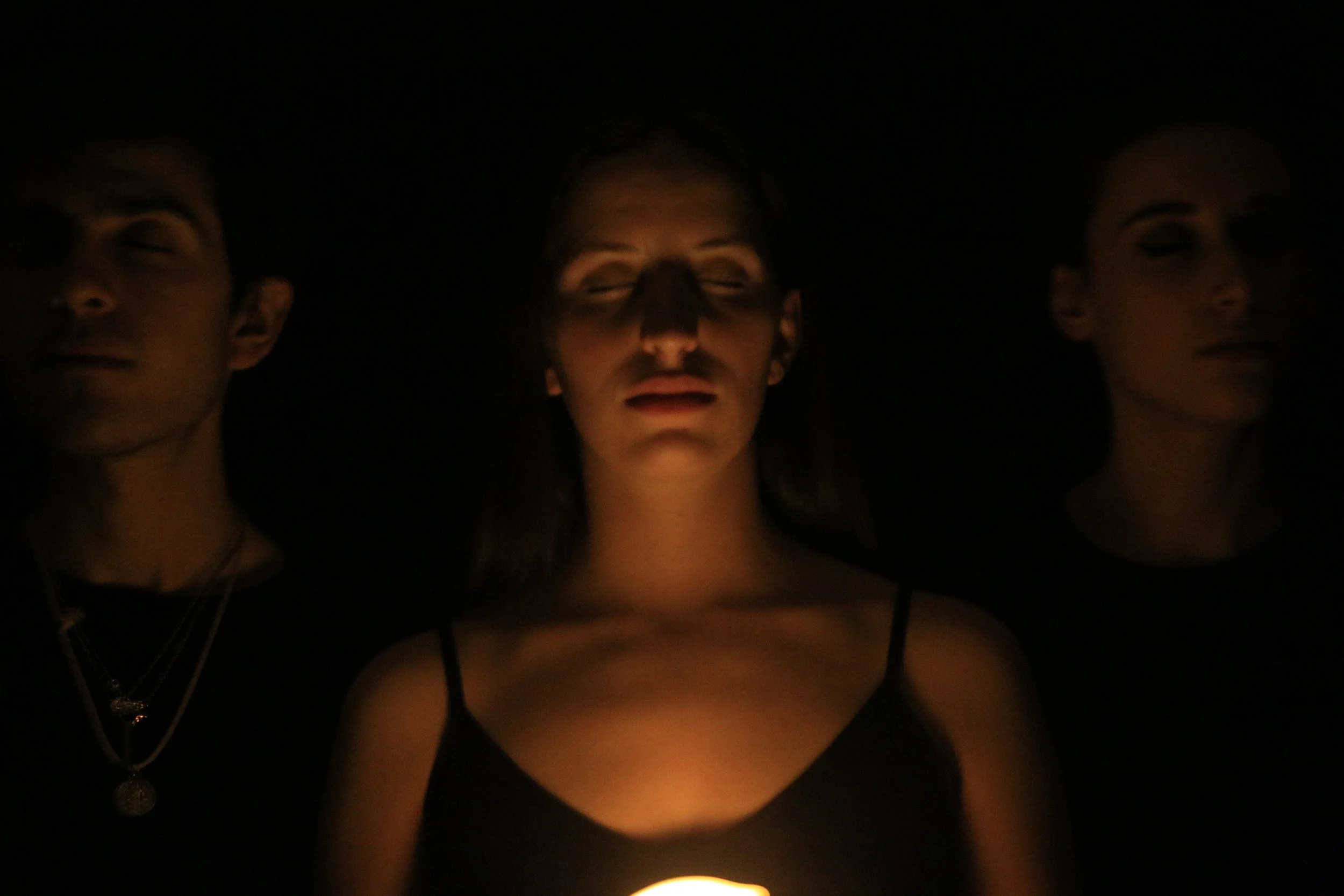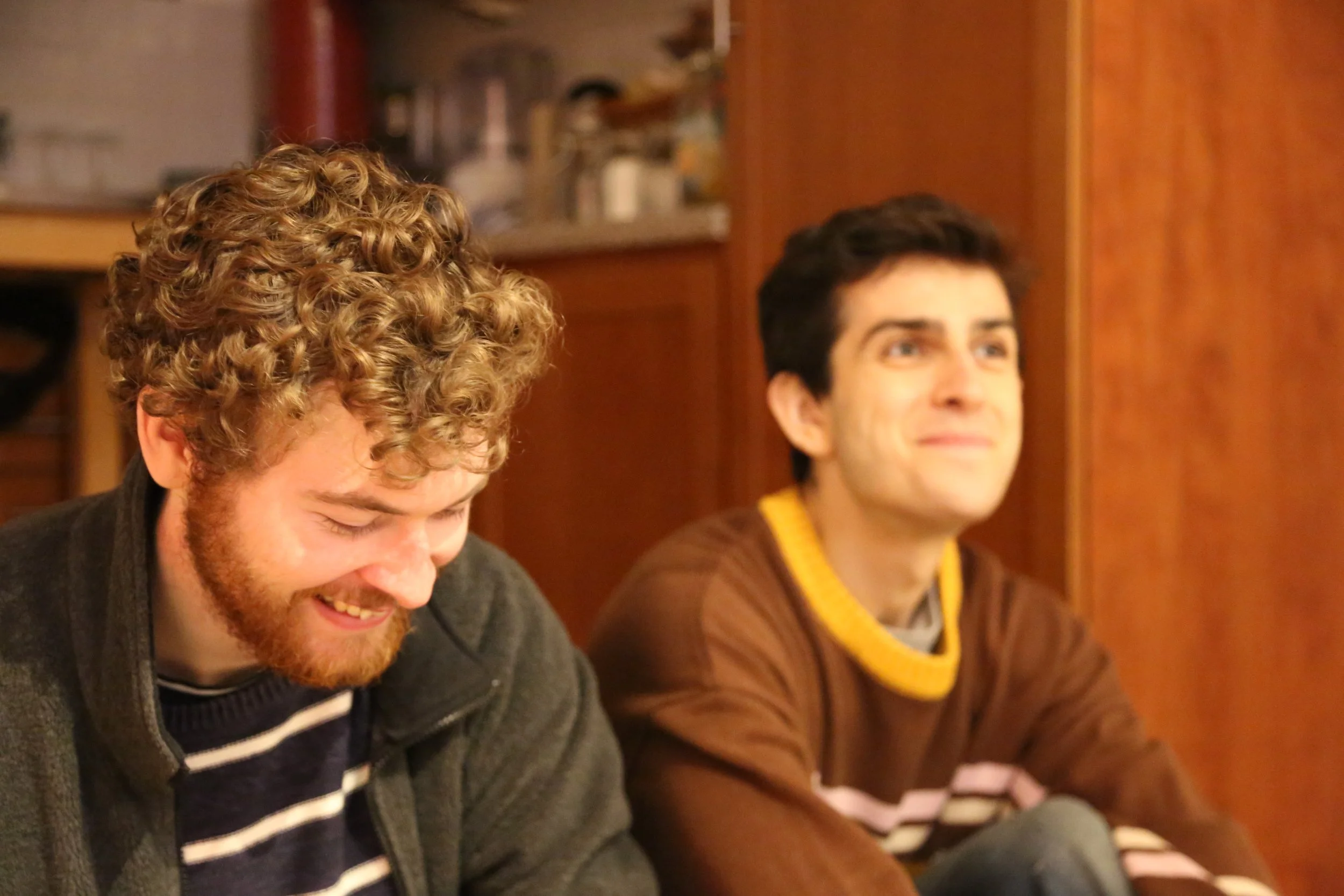Think in a different kind of way
Ahead of Nyctophilia’s move from Buxton to Edinburgh I sat down with Isaac Saward, writer, to discuss the intricacies of the script and why he chose to tackle such an innovative new concept.
There’s an interesting spark in Isaac’s eye whenever you mention theatre in the dark. In some ways it reminds me of a child on Christmas morning, eagerly awaiting what’s sitting under the tree. But unlike those children, Isaac isn’t excited to see what you have waiting for him, but rather about what he can illuminate for you. Or not illuminate, so to speak. So when I got the chance to chat to him about his latest script, where his interest in dark theatre stems from, and why he chose to approach it in this way, it’s safe to say I knew I was in for a fascinating conversation.
“…that whole play changed my perspective on what theatre could be.”
“When I was 16, I went and saw Lela & Co. at the Royal Court,” he begins by telling me. “In it,” he continues, “there was about 15 minutes of the show that was performed in complete darkness. At the most emotionally intense bit of the show, the climax when Lela is trying to escape the flat she’s been kept in, with the city that she lives in under siege with bombs falling, she begins the long walk home with her new born baby, who dies along the way. As she’s speaking they used 3D sound to show you the planes and the bomb. As Lela talks about how she buries her child at the roadside, at this most desperate moment, a single lightbulb with a butterfly inside lights up, dim to begin with but it gets brighter and brighter. And we could see Lela underneath, hands reaching towards it… that whole play changed my perspective on what theatre could be.”
“I felt everything much more intensely, and I really lost the sense that I was part of an audience.”
He speaks more, about that performance as a whole and the way it was brilliantly framed by the whole creative team behind it to be a complete attending experience, more than just your average show, but he zeros in on those moments when the lights were out. As he puts it, “...In the darkness in there, everything I was feeling was much more heightened. I felt everything much more intensely, and I really lost the sense that I was part of an audience. Obviously I could still feel that I had people either side of me, but you’re really just focused on what the actors are saying. For me as well, because it was very intense and I am English (and therefore emotionally constipated) it meant that I could actually cry. And not feel weird about crying in the theatre.”
It’s a fascinating idea, isn’t it, the concept that how we emotionally respond to a piece of work is reliant on the environments in which we view it. Because it supposedly something that is so obvious, of course we find it easier to cry in the comfort of our homes than in a packed public space. And yet, we don’t consider these intricacies of etiquette when we book a ticket, when we plan our next performance. For something so revolutionary, you’d think we’d bear it more consideration. To Isaac, it’s a fundamental as to why theatre in the dark is transformational.
“Obviously there’s this link between darkness and nature and all of that stuff. Historically darkness has been used spiritually for different religious practices. In today’s climate I think a lot of people are seeking to return to something spiritual, whether that’s organised religion or more pagan practices, or just going “I believe that there’s something around but it’s nothing tangible to put words to it”. I think this return to spirituality is because of the uncertain and chaotic world that we currently live in. The future for our planet is uncertain, and I believe that theatre in the dark enters this spiritual space which I think could be very enlightening, or healing, for lots of people. Transformative, for lots of people.”
“It’s been really cool seeing people interpret things differently, and in a way I wouldn’t have even thought about while writing it.”
What Isaac understands, and what Nyctophilia relies upon, is the idea that darkness provides us a sense of catharsis. With our sight removed, and with the knowledge that the sight of those around us is also gone, we find ourselves given silent permission to feel at a deeper level than we otherwise would. In Lela & Co. that allowed Isaac the chance to connect on a deeper level to the storytelling and emotion of the show. In Nyctophilia, he uses that deeper concentration to traverse space and time, moving the audience on a journey backwards through history as the show progresses. It’s a writing choice only made possible by the darkness that surrounds the performance, to put it simply, the show would be unaffordable for a company like Haywire if we had to pay for the set and costume needed to make it viable in the light. Certainly a challenge for both directors and performers to make up those visual shortfalls, but an interesting choice for the story. One Isaac can justify; “I was thinking about the audience and the fact that for a lot of them this is going to be a new experience and in the dark, because of the impact of the dark on the brain, it can be quite hard to focus and stay in the moment. I wanted it to be a series of short scenes so if an audience member ‘came out of it’ they could dip back in and they wouldn’t have missed anything.”
Which with hindsight, makes complete sense. This a performance audiences must accept as an experience, it is neither a complete show or a mini-series. Instead, it should be considered more as an offering, we put forward a possible interpretation and allow audience members to decide if they agree. If they don’t they can fill those visual gaps with whatever they’d like, essentially allowing the show to be entirely recreated in their imagination. It’s a thoroughly exciting idea, that we haven’t, in actuality, created a single show, but rather a single foundation, through which the viewers (or listeners?) turn it into a complete piece. When asked how that process has been for him, Isaac summises it nicely, “It’s been really cool seeing people interpret things differently, and in a way I wouldn’t have even thought about while writing it.”
But all that considered, what remains? The final question worth asking is why. Why create a piece like this? What does it add to the theatrical experience, why should it be prioritised by audiences and considered by other artists? “It’s not a cash grab, or a stunt,” Isaac insists. Well then if not that, and if not a traditional show, then what is it? I think the difficult pill for some audiences to swallow is that we can’t provide you an easy answer to the question. That’s for you to decide. Nyctophila is half our work, and half yours. Which means you get to decide what it means to you, and what you can call it. To me, that’s one of the biggest parts of its appeal, because you won’t find anything else quite like it this summer. I asked Isaac how he’d sell the show to someone uncertain, if it was down to him. As always, the writer puts it best: “Very often in today’s world what we see is stagnation, and repeats, and the same, so come and try something new and it might just make you think in a different kind of way.”
Think in a different kind of way. What a beautiful way to describe Nyctophilia.
You can catch Nyctophilia at the Edinburgh Fringe from 5th-13th August, The Olive Studio, Infirmary Street.



